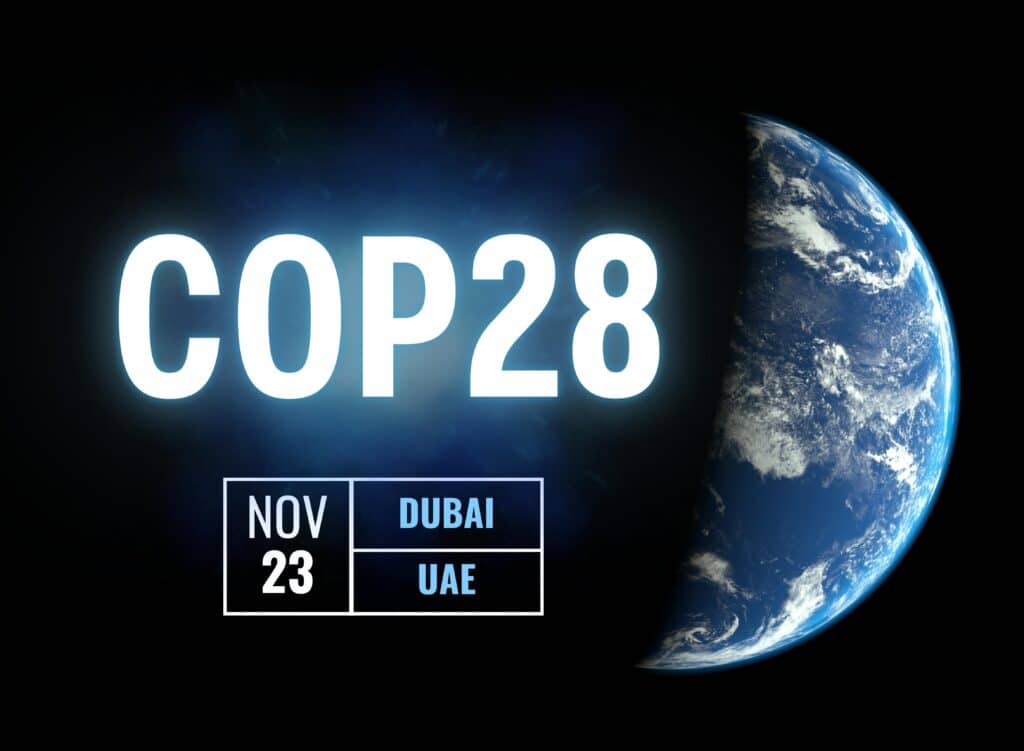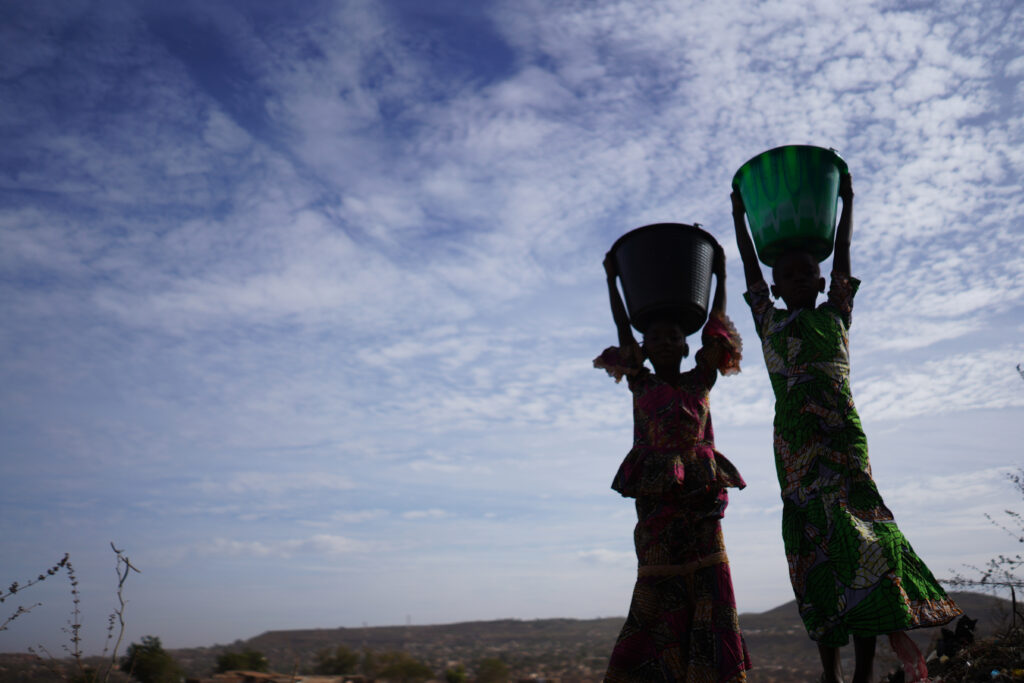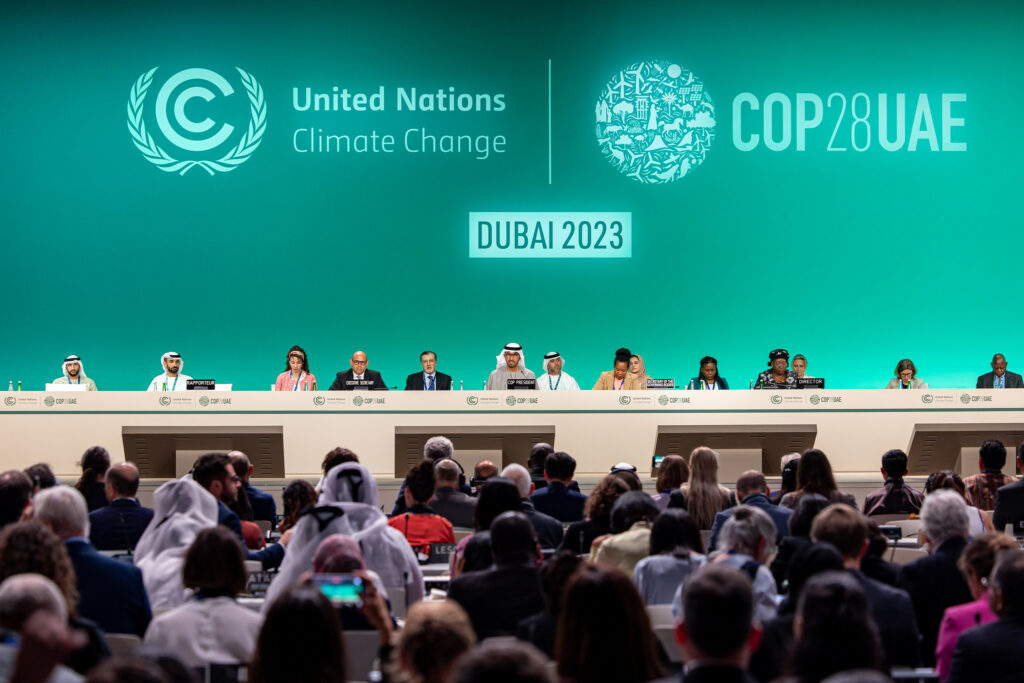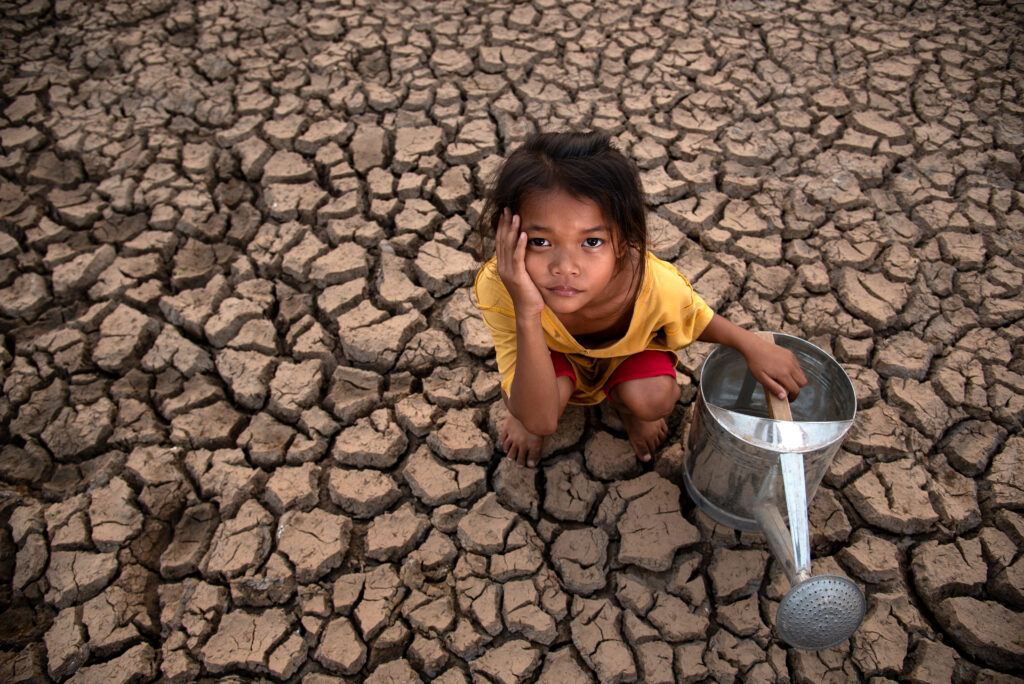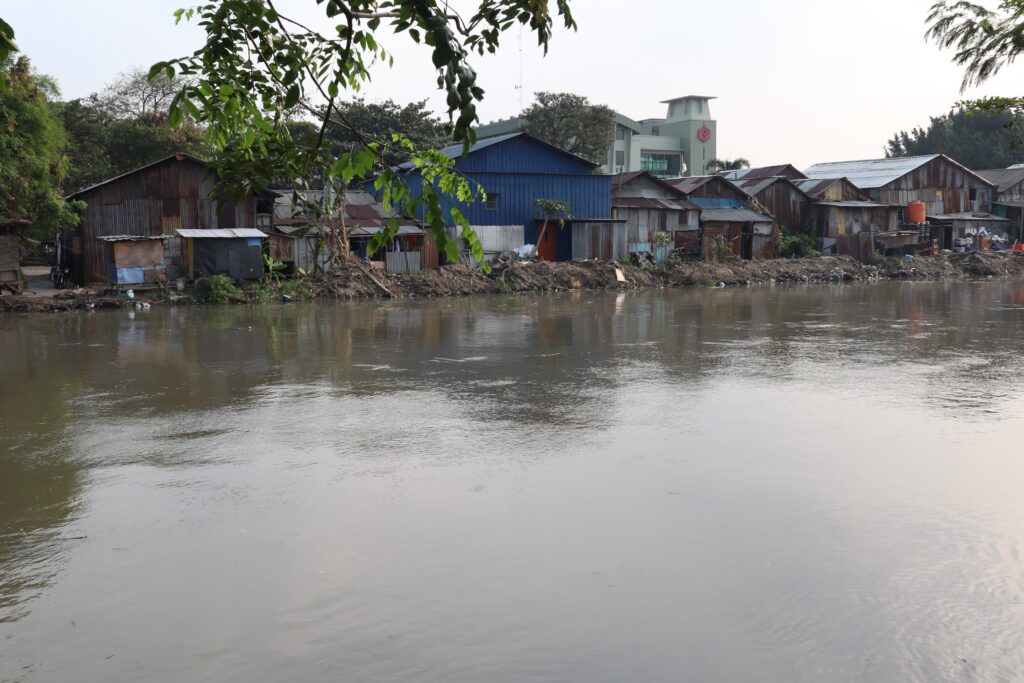The Amazon, Africa’s Congo basin and Southeast Asian forests are among the most pristine and diverse natural ecosystems. While having vibrant flora and fauna, they also generate their own rainfall and serve as a potent regional cooler. Simply put, they are as perfect and as unique as a natural ecosystem can be. However, all this is at risk due to climate change. If solutions aren’t found quickly and implemented, the world has so much to lose, with time quickly running out.
According to many top scientists, this isn’t just an imaginary scenario but a real risk. Once this process kicks off, it will be irreversible, they warn. One particular reason is human destruction of nature, but forests are just one in the long list of ecosystems at risk.
COP28 UAE became the stage for yet another damning scientific report concluding that climate change risks unleashing dangerous and irreversible damage to people and natural ecosystems. The solution, as scientists warn, should be timely and extend beyond vague pledges and targets.
World On the Verge of Surpassing Several Tipping Points
The Global Tipping Points report, written by a team of 200 researchers and presented at COP28 2023, warns that a 1.5°C warming will breach five critical thresholds, including:
- the collapse of big ice sheets in Greenland and the West Antarctic,
- widespread permafrost thawing,
- death of coral reefs due to warming oceans,
- collapse of atmospheric circulation in the North Atlantic and
- impacts on the North Atlantic subpolar gyre circulation.
Another three tipping points are likely to join the list in the 2030s, including:
- the death of mangroves in some regions (if temperatures rise between 1.5 and 2°C),
- loss of boreal forests (in case of warming between 1.4 and 5°C) and
- the death of seagrass meadows (in case of temperature rise of 1.5 to 2°C).
In the long term, this can cause potential shifts of entire climatic systems from one state to another. Due to the deep links between different ecosystems, such a scenario can create feedback loops, triggering other tipping points (also known as “tipping cascades”). As a result, it can cause permanent alteration to the way our planet functions.
This will profoundly impact social, economic and natural ecosystems, potentially exceeding the ability of some countries to adapt.
The authors warn that the threat posed by the climate and ecological crisis is of a magnitude never before faced by humanity. At the same time, they note that there is no adequate global governance to counteract it.
Preventing the triggering of these tipping points requires an immediate fossil fuel phaseout, strengthened adaptation, loss and damage governance and the inclusion of the tipping points in NDCs and the Global Stocktake, as well as increased investments in renewable energy and EVs.
According to the IPCC, if countries ensure the needed financial support, existing ecosystem-based adaptation solutions can help tame climate risks and build resilience.
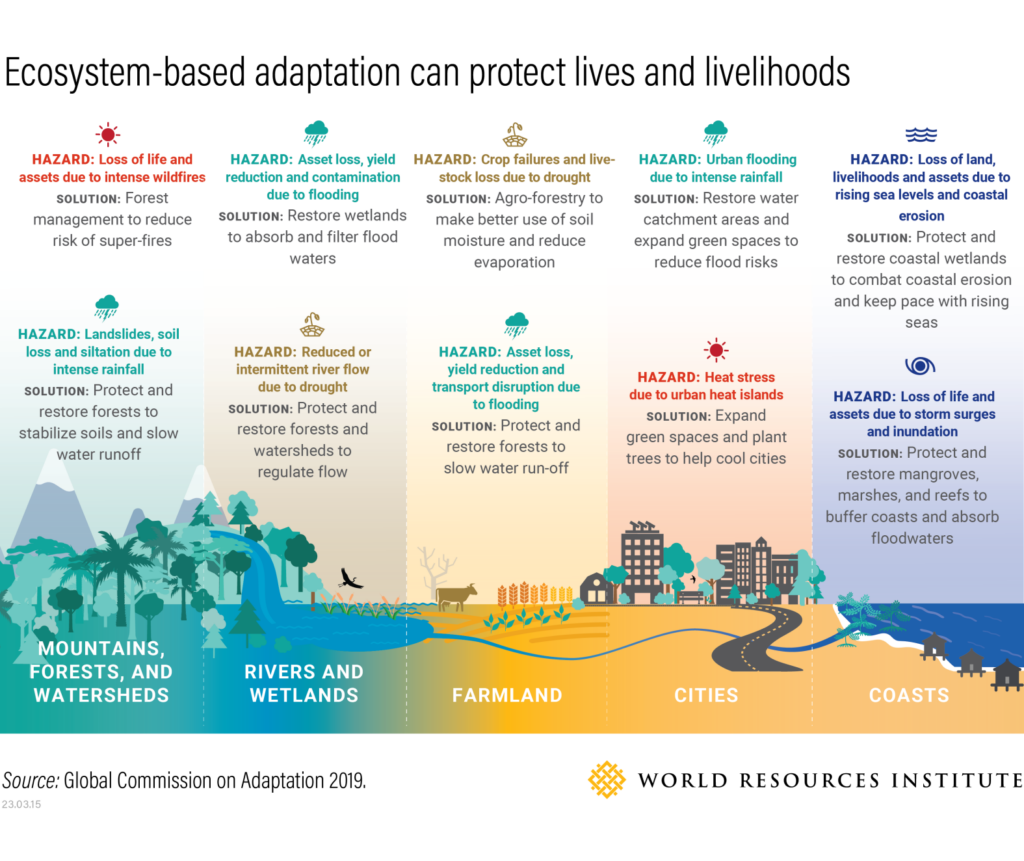
The Latest Global Warming Forecasts Make These Risks Real
The latest climate change science review by the IPCC concluded that tipping points, like ice-sheet changes or loss of natural ecosystems, become high-risk at between 1.5°C and 2.5°C and very high-risk at between 2.5°C and 4°C.
According to Climate Action Tracker, the 2030 national emission targets risk taking the world on a course to 2.5°C of global warming by 2100.
The UNEP’s Emissions Gap Report 2023 finds that without aggressive action, current collective climate commitments will result in 2.5-2.9°C of warming above pre-industrial levels by the end of the century.
Such a scenario will make severe weather impacts more probable and frequent.
High-risk Regions
Climate change perfectly epitomises the injustice many communities have to deal with. The least polluting and least developed countries are bearing the harshest impacts of the climate crisis.
The regions facing the highest risk include Southeast Asia, parts of Africa and low-lying island countries worldwide.
In these regions, climate hazards pose a massive threat to livelihoods and the natural ecosystems that coastal communities and Indigenous people rely on to get by. According to the UNDP, climate change’s impact on coastal flooding will increase five times by 2100, putting 70 million people at risk.
At COP27, calls from the many vulnerable nations asking leading polluters to pay for climate change mainly remained unheard. At the same time, these nations led the pack regarding ocean climate action by including solutions in their NDCs.
COP28: Key Highlights and Developments on Natural Ecosystems
At the opening of the Nature, Land Use and Oceans Day at COP28 Dubai, the UN Climate Change High-Level Champion for COP28, H.E. Razan Al Mubarak, warned: “There is no path to keeping 1.5°C within reach without protecting nature, land and the ocean. We must unite behind nature-positive solutions.”
The repeated calls from leaders of climate change-affected countries at COP28 and previous conferences managed to achieve some historical wins.
New Financing Initiatives to Protect Nature
During COP28’s World Climate Action Summit (WCAS), parties mobilised USD 2.5 billion for protecting and restoring nature.
The Nature, Land Use and Ocean Day ensured an additional USD 186.6 million of new financing for nature and climate. The funds are intended specifically for protecting forests, mangroves and the ocean.
A call by the COP28 Presidency and China, as president of the Convention on Biological Diversity, for nations to aim for simultaneous implementation of climate and nature strategies was backed by 18 countries and 11 biodiversity partnerships across forests, mangroves and the ocean.
Indonesia’s Mangrove Alliance for Climate expanded with 30 new members to reach a total of 37 since its launch at COP27. Together, membership covers over 60% of the world’s mangroves.
Furthermore, 21 nations formally endorsed the Mangrove Breakthrough initiative. It aims to restore and protect 150,000 square km of mangroves globally by 2030 by granting USD 4 billion in financial support.
Over 150 businesses and financial institutions announced plans to set climate and nature targets under the Science-based Target Network and Science-based Target International’s Forest Land and Agriculture frameworks. Businesses will increase investments in nature-based solutions and begin assessing, managing and disclosing their nature-related impacts, risks and opportunities through the Taskforce on Nature-related Financial Disclosures (TNFD) framework. This is a significant breakthrough that can accelerate the private sector’s efforts to preserve nature.
Global Stocktake
The Global Stocktake is a five-year checkpoint aiming to help governments evaluate their climate action progress. It also targets boosting nations’ climate ambition and motivating states to improve their national targets. However, aside from providing a snapshot, it will also advise countries on the drastic action required to cut emissions in line with science.
At COP28, there were three high-level Global Stocktake events on mitigation, adaptation and means of implementation.
On mitigation, leaders stressed the urgent need for deep and rapid global emissions reductions and reaching net zero by 2050.
On adaptation, parties highlighted the adaptation implementation and finance gaps, stressing the need for all to jointly help vulnerable developing countries. They also recognised the importance of natural ecosystems for adaptation, including through ecosystem-based solutions, with a particular emphasis on water and mountains.
On implementation, they urged for increased investments to fill the gap needed to achieve Paris Agreement goals.
In an open letter, a group of environment ministers called for the inclusion of nature in the Global Stocktake outcome. The document also underscores the importance of the involvement and respect for the rights of Indigenous peoples and local communities.
Tackling Waste and Protecting Nature
COP28 became a stage for the launch of the Waste to Zero Initiative. The voluntary coalition of governments, NGOs and the private sector aims to decarbonise the waste management sector and transform waste into resources.
In addition, parties launched the Waste MAP. This is a pioneering project that uses satellite monitoring to track and measure methane emissions from waste. It aims to empower local governments and NGOs to identify and mitigate methane emissions before they become hazardous. The platform will launch in 20 global megacities, collectively home to over 100 million people.
Through a joint statement, 17 countries called for using sustainable wood in construction. The Forest & Climate Leaders’ Partnership’s Greening Construction with Sustainable Wood initiative aims to unlock global collaboration to rapidly transform the building sector.
The WWF and the International Federation of Consulting Engineers jointly launched an initiative named A Playbook for Nature Positive Infrastructure Development. It spotlights the construction sector’s role in conserving and restoring natural ecosystems.
Financial Support For Forests and Oceans
The COP28 Presidency, along with its partners, announced a series of initiatives to meet climate and biodiversity goals through an initial USD 1.7 billion pledge.
The UAE promised to contribute USD 100 million in financing for new nature-climate projects. Moreover, the COP27 Presidency promised an initial investment of USD 30 million specifically for the Ghanaian government’s “Resilient Ghana” plan.
Additionally, the Prime Minister of Tonga announced USD 100 million of finance for Pacific Small Island Developing States. The financial aid aims to protect 30% of the countries’ waters and exclusive economic zones by 2030.
Various philanthropic organisations promised USD 250 million of new finance for protecting vulnerable marine areas, ocean-based mitigation efforts and research on climate impacts under the Ocean Resilience Climate Alliance.
The Asian Development Bank, the OPEC Fund, Saudi Arabia and other partners announced a new initiative to mobilise USD 1 billion called the Nature Finance Hub. The fund intends to mobilise USD 2 billion in additional private financing by 2030 for nature-focused climate projects.
The leaders acknowledged the pivotal role Indigenous communities play in ecosystem conservation. While representing just 5% of the global population, they protect 80% of the world’s remaining biodiversity. As a result, capitalising on their knowledge will be a key focus of the UAE-Brazil COP28-to-COP30 partnership.
Scientists: Natural Ecosystem Preservation Will Fail Without Fossil Fuel Phaseout
Estimates reveal that reversing nature loss can guarantee over 30% of the mitigation action needed to keep 1.5°C within reach by 2030. And it would dramatically reduce climate-related hazards. Furthermore, nature preservation can ensure USD 10 trillion in new business opportunities and provide almost 400 million new jobs.
However, at COP28, scientists had a clear warning. Averting a planetary catastrophe is an equation with two parameters: agreeing on a fossil fuel phaseout and the preservation of natural ecosystems. Without sufficient progress on both ends, we will face the same warnings and deal with the same problems this time next year.
In that sense, while COP28 leaders demonstrated more ambition than any previous conference regarding natural ecosystem preservation, the feet dragging on the fossil fuel phaseout needs to be addressed.
Viktor Tachev
Writer, Bulgaria
Viktor is a writer that specialises in green finance and ESG investment practices. He holds a Master's degree in financial markets and has over a decade of experience working with companies in the finance industry, along with international organisations and NGOs. Viktor is a regular contributor to several publications and comments on the likes of sustainability and renewable energy.
Viktor is a writer that specialises in green finance and ESG investment practices. He holds a Master's degree in financial markets and has over a decade of experience working with companies in the finance industry, along with international organisations and NGOs. Viktor is a regular contributor to several publications and comments on the likes of sustainability and renewable energy.


